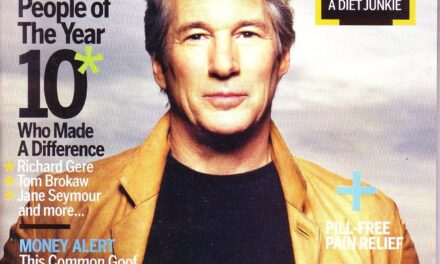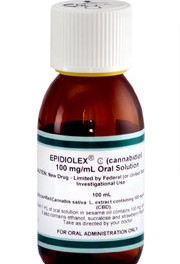Antioxidants and CBD
A warning From Joe D. Goldstrich, M.D., a reassuring response from Dustin Sulak D.O., and an additional comment from Goldstrich, December 4-8.
First the warning: The attached review article is seminal and its main message needs to be widely disseminated, in my opinion. Many people who use CBD as part of their treatment for cancer are also taking a lot of supplements, many of which have antioxidant properties. Antioxidants appear to reverse the cancer-inhibiting properties of CBD. Vitamins C and E, curcumin, CoQ10, etc., they all need to be stopped when CBD is used for cancer, in my opinion.
The article is by Sean McAllister, Lilliana Soroceanu, and Pierre-Yves Desprez of California Pacific Medical Center Research Institute. It ran March 30 in the Journal of Neuroimmune Pharmacology, and has not gotten the attention it deserves. Why is it that so many significant journal articles get downplayed and trivial ones often trumped up in the corporate media?
Response from Dustin Sulak, D.O.
Thank you for your post and the link to this excellent review article on the anti-tumor effects of CBD. I respectfully disagree with your interpretation of the data regarding concurrent use of CBD and antioxidants.
The review article describes more than a dozen anti-tumor mechanisms of action of CBD. While some of these mechanisms of a action are dependent on the production of reactive oxygen species (ROS), several are not ROS-dependent. One of the in vitro studies (cell culture) looking at human glioma cells found that vitamin E, an antioxidant, did partially impair the anti proliferative effects of CBD. (Massi et al., 2003) Another study on glioma cell lines showed that glutathione, a powerful antioxidant produced by our cells, had decreased in the glioma cells treated with CBD. (Mass et al., 2006) Interestingly, CBD did not have the same effect on health glial cells. This suggests to me that CBD may be able to trigger ROS production in the cancer cells regardless of the glutathione and antioxidant levels elsewhere in the body.
There is a widespread scientific debate around the matter of antioxidants, in general, making existing cancers better or worse. I’m sure that the answer is complex and individualized depending on the patient’s physiology, cancer type, stage, and concurrent treatments. Curcumin, which you mentioned avoiding as an antioxidant, has been shown to possess a number of anticancer properties. Integrative cancer treatment entails a balance between supporting the patient’s health while triggering death or impaired function in the cancer cells. I do believe that antioxidants, including those that increase glutathione levels, can be useful for supporting health in some cancer patients.
It’s also important to remember that CBD itself is an antioxidant (briefly mentioned on page 2 of the review article), so it’s nearly impossible to treat cancer with CBD in the absence of exogenous antioxidants.
In summary, I believe this is a very complex question, and the limited preclinical data is too weak to make a broad recommendation to avoid antioxidant treatments when using CBD as an anticancer strategy.
Response from Dr. Goldstrich December 8, 2015:
Thank you so much for your thoughtful and insightful comments. I read the McAllister paper on a flight to the Bay Area. As I read about the potential adverse interaction of antioxidants with CBD, two patients came immediately to mind. Both of these patients have stage IV prostate cancer with significant bony metastases and PSA levels greater than 100. One of the patients, despite up to 300 mg of CBD daily (in addition to 100 mg of THC) has continued to show increasing levels of PSA. This patient takes over 25 supplements daily, most of which have significant antioxidant activity. As I read the article a light went off in my head…. an epiphany of sorts…. that his failure to respond might be related to his antioxidant use. I have already advised him to stop his antioxidants.
From this 2011 paper http://www.ncbi.nlm.nih.gov/pmc/articles/PMC3410650/ by McAllister:
“We determined that the ROS scavenger, α-tocopherol (TOC), could reverse the ability of CBD to inhibit the proliferation of MDA-MB231 cells. Moreover, we found that TOC could also significantly reverse the ability of CBD to inhibit the invasion of MDA-MB231 cells and to down-regulate Id-1 protein expression. In agreement with the experiments utilizing TOC, CBD led to a direct increase in ROS formation, an increase that was reverted upon co-treatment with TOC. These data suggest that production of ROS by CBD can lead to the inhibition of both human breast cancer cell proliferation and invasion, in part, through the down-regulation of Id-1 gene expression.”
Down regulation of Id-1 gene expression appears to be one of the most important mechanisms involved in not only killing CBD responsive cancer cells, but also in preventing these cancers from metastasizing. In my opinion. Anything that interferes with this process should be avoided.
In this 2015 paper http://www.ncbi.nlm.nih.gov/pubmed/25590811 by Singer, enhancement of reactive oxygen species (ROS) led to robust antitumor effects that included decreased glioblastoma stem cell survival, decreased self-renewal, and decreased invasion.
Over the past several days I’ve given this matter considerable thought. My initial admonition to stop all anti-oxidants may have been in over reaction. Curcumin, while having antioxidant activity, also has significant anticancer activity and is probably a worthwhile supplement. Medicinal mushrooms, including Turkey Tail, would also fall into this category. That said, I still believe the principle of parsimony would apply when adding antioxidants to CBD cancer therapy. As Dr. Russo said in his SCC presentation yesterday, perhaps the mild antioxidant activity of CBD itself is sufficient.
Again, thank you Dr. Sulak for your insightful input. Through these types of dialogues, we all learn and are better able to help our patients.
Joe D.
PS
The attached 2015 article may be worth adding to the discussion. The antioxidant with the best clinical trial evidence for treating cancer seems to be melatonin: Antioxidants for cancer




